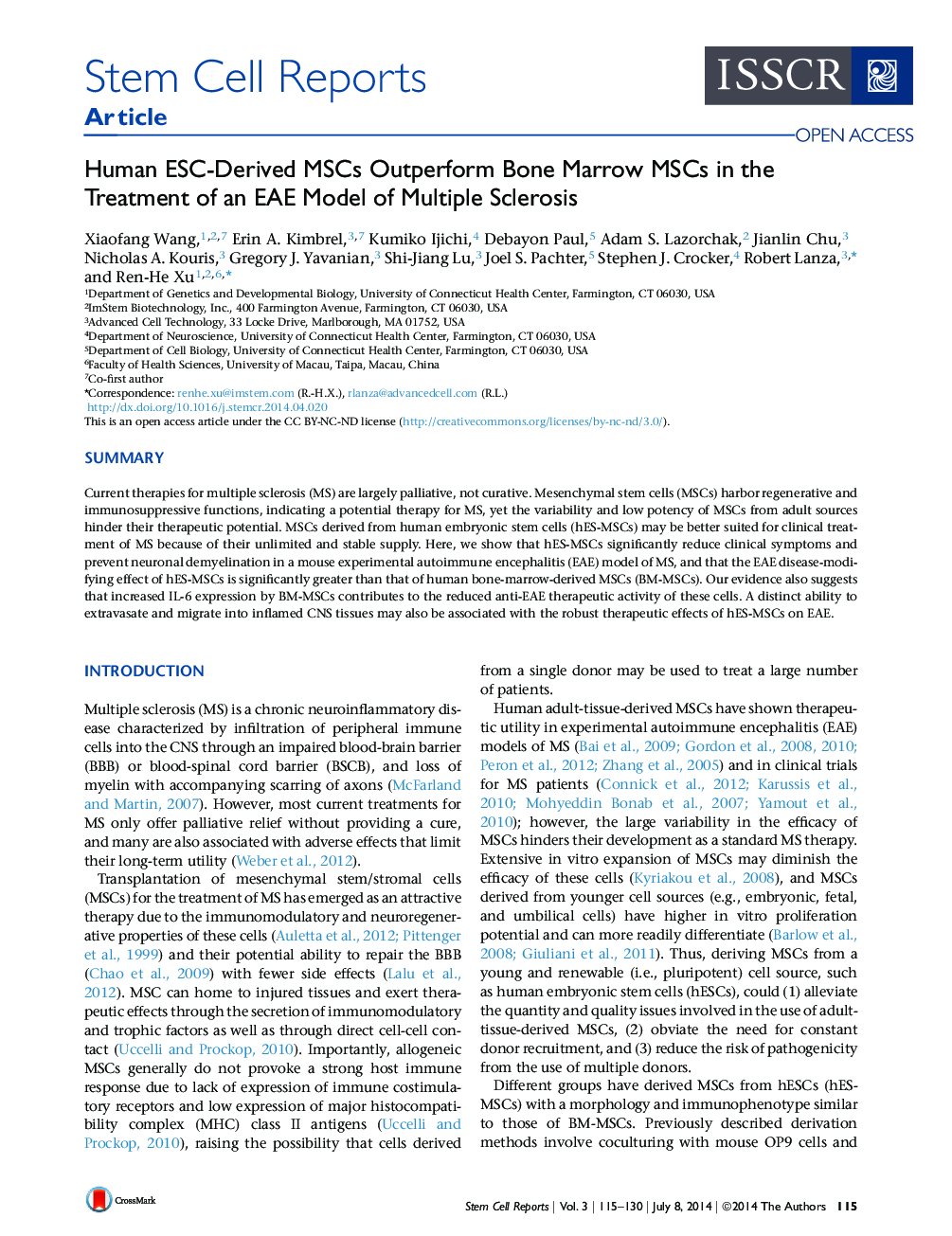| Article ID | Journal | Published Year | Pages | File Type |
|---|---|---|---|---|
| 2093385 | Stem Cell Reports | 2014 | 16 Pages |
•hES-MSCs show increased anti-EAE effects relative to adult human BM-MSCs•hES-MSCs express fewer proinflammatory cytokines than BM-MSCs•hES-MSCs enter the CNS more efficiently than BM-MSCs in EAE
SummaryCurrent therapies for multiple sclerosis (MS) are largely palliative, not curative. Mesenchymal stem cells (MSCs) harbor regenerative and immunosuppressive functions, indicating a potential therapy for MS, yet the variability and low potency of MSCs from adult sources hinder their therapeutic potential. MSCs derived from human embryonic stem cells (hES-MSCs) may be better suited for clinical treatment of MS because of their unlimited and stable supply. Here, we show that hES-MSCs significantly reduce clinical symptoms and prevent neuronal demyelination in a mouse experimental autoimmune encephalitis (EAE) model of MS, and that the EAE disease-modifying effect of hES-MSCs is significantly greater than that of human bone-marrow-derived MSCs (BM-MSCs). Our evidence also suggests that increased IL-6 expression by BM-MSCs contributes to the reduced anti-EAE therapeutic activity of these cells. A distinct ability to extravasate and migrate into inflamed CNS tissues may also be associated with the robust therapeutic effects of hES-MSCs on EAE.
